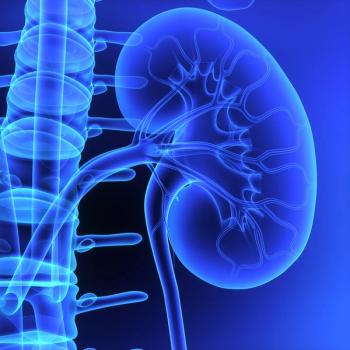
Alessio Pigazzi, MD, PhD, FACS, FASCRS, provides advice for upcoming surgeons starting out in the colorectal cancer field.

Your AI-Trained Oncology Knowledge Connection!


Alessio Pigazzi, MD, PhD, FACS, FASCRS, provides advice for upcoming surgeons starting out in the colorectal cancer field.

Data from the IMerge trial affirm the enduring responses and clinical benefit with imetelstat in those with transfusion-dependent MDS.

Investigators showcased feasibility of combining pathology findings with deep learning artificial intelligence to speed up biomarker detection and discovery for patients with lung cancer.

Alessio Pigazzi, MD, PhD, FACS, FASCRS, discussed how robot-assisted surgery for colorectal cancers has evolved over the past 20 years.

Data from the PERSEUS trial support the benefit of D-VRd and DR maintenance as a standard of care in transplant-eligible newly diagnosed multiple myeloma.

Efficacy, safety, time, and cost were all factors assessed between subcutaneous and intravenous rituximab for patients with non-Hodgkin lymphoma.

Earlier use of liso-cel may improve responses in patients with relapsed/refractory chronic lymphocytic leukemia or small lymphocytic lymphoma.

Alessio Pigazzi, MD, PhD, FACS, FASCRS, discussed surgical and medical oncology developments in the colorectal cancer field.

A ready-to-use subcutaneous or intravenous injection of bortezomib for multiple myeloma and MCL has been approved by the FDA.

Recent FDA approval of the companion diagnostics may help improve personalized treatment decision-making for patients with prostate cancer.

Antibody-drug conjugates and small molecule inhibitors may show utility in the neuro-oncology field, according to Nader Sanai, MD.

Phase 1 data may warrant further investigation of TLX101 plus external beam radiation therapy for patients with recurrent glioblastoma.

Support for the decision follows phase 1 findings evaluating IBI363 in patients with advanced solid tumors presented at the 2024 ESMO Plenary.

Surgeons, radiation oncologists, and medical oncologists gathered to discuss treatment options and approaches for NSCLC.

Data from LITESPARK-005 establish belzutifan as a treatment option in advanced RCC following prior immune checkpoint and antiangiogenic therapies.

Treatment with CB-012 for patients with relapsed/refractory acute myeloid leukemia is under evaluation as part of the phase 1 AMpLify trial.

Cancer rehabilitation medicine may help bridge a gap in oncology care, according to Jessica Cheng, MD.

The phase 3 Gliofocus trial aims to meaningfully improve survival and quality of life with niraparib among patients with newly diagnosed glioblastoma.

Findings from a proof-of-concept study show a potential survival benefit with niraparib/radiotherapy in patients with newly diagnosed glioblastoma.
![“I don't think [the CRL] impacts how I look at the data that is publicly available and the approval chances long term for linvoseltamab and how we might use it in the future,” said Surbhi Sidana, MD.](https://cdn.sanity.io/images/0vv8moc6/cancernetwork/8b007a323176820eb0754e84186341fe7ca44ae4-350x350.jpg?w=350&fit=crop&auto=format)
“I don't think [the CRL] impacts how I look at the data that is publicly available and the approval chances long term for linvoseltamab and how we might use it in the future,” said Surbhi Sidana, MD.

Data from the phase 2 PHAROS trial support the European Commission’s approval of encorafenib/binimetinib in NSCLC harboring a BRAF V600E mutation.

Favorable recurrence-free survival and overall survival outcomes were not observed in the overall patient cohort receiving adjuvant chemotherapy for advanced NSCLC.

Surbhi Sidana, MD, spoke about multiple myeloma developments with the potential to impact clinical practice, particularly early line use of bispecific antibodies.


It can be hard to get exposure for a new field, but Jessica Cheng, MD, has big plans on how to advance the field of cancer rehabilitation.

Experts in multiple myeloma weigh the benefits and risks of administering CAR T-cell therapy to patients based on prior reports of secondary malignancies.

Surbhi Sidana, MD, discussed LINKER-MM1 trial efficacy findings, in which linvoseltamab was evaluated in patients with relapsed/refractory multiple myeloma.

Anyone undergoing cancer treatments could benefit from cancer rehabilitation, according to Jessica Cheng, MD.

Surbhi Sidana, MD, discussed outpatient supportive care for patients following immunotherapy treatment for hematologic cancers.

Jessica Cheng, MD, noted that working with patients in the field of cancer rehabilitation to improve recovery times brings her joy.